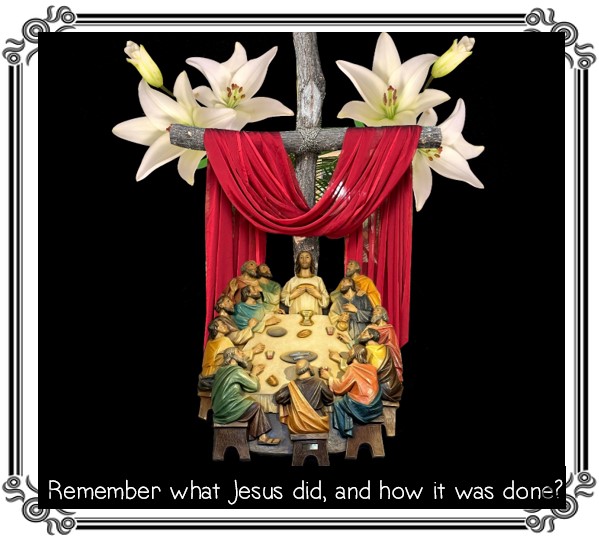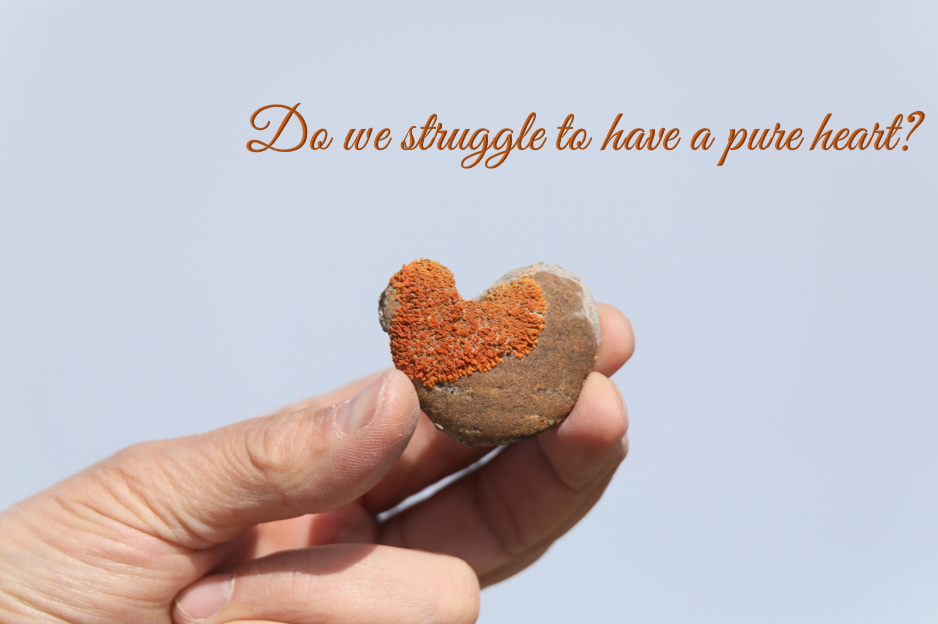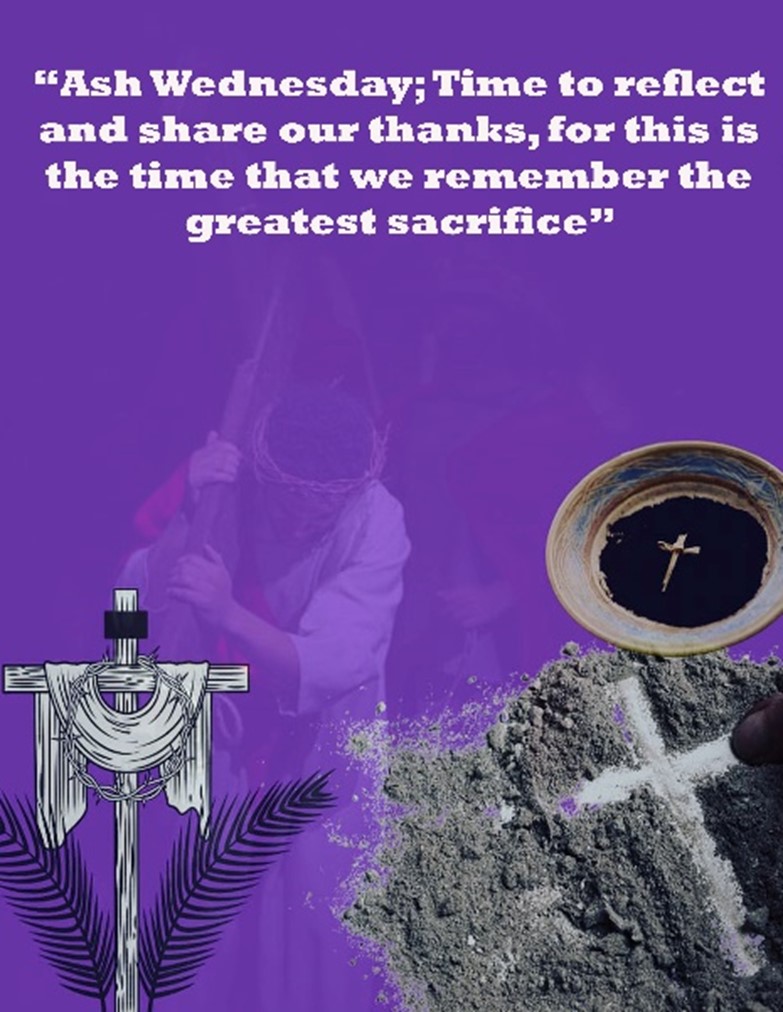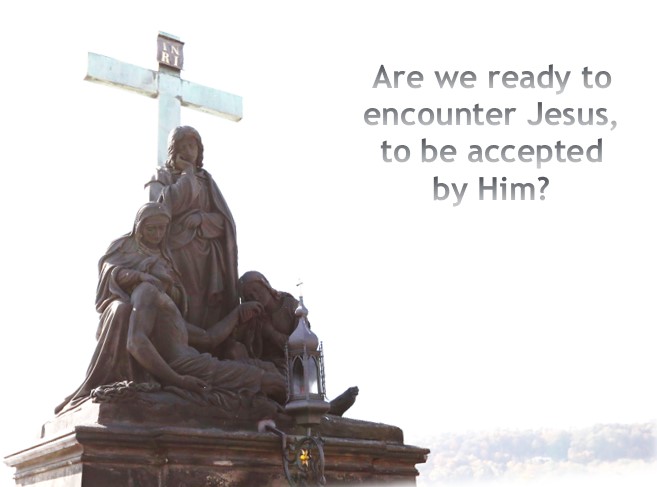
Holy Triduum Year A – April 6-9, 2023
HIS SACRIFICE RAISES US TO ETERNAL LIFE
Today we begin Holy Triduum which brings us to the solemn celebrations of the Holy Week. These three days are holiest days for all of us Christians to remember what Jesus did, and how it was done? On Holy Thursday we learn the aspect of service. Pope Francis explains it this way; “On this Thursday, Jesus was at the table with the disciples, celebrating the feast of Passover. And the passage of the Gospel which we heard contains a phrase that is the very core of what Jesus did for us: “having loved his own who were in the world, he loved them to the end”. Jesus loved us. Jesus loves us. Without limit, always, to the end”. Jesus’ love for us knows no limits: always more and more. He never tires of loving anyone. He loves us all, to the point of giving his life for us. Yes, giving his life for us; yes, giving his life for all of us, giving his life for each one of us. And every one of us can say: “He gave his life for me”. Everyone: He gave His life for you, for you, for you, for you, for me, for him… for each person, by their first and last name. His love is like that: personal. Jesus’ love never disappoints, because He never tires of loving, just as He never tires of forgiving, never tires of embracing us. This is the first thing that I wanted to say to you: Jesus loves us, every one of us, to the end. St. Bruno says, “While the world changes, the Cross stands firm”. His sacrifice being shown in the Holy Eucharist reminds us that we must learn to break and share ourselves. St. John Vianney reflects this way “What does Jesus Christ do in the Eucharist? It is God, who, as our savior, offers himself each day for us to his Father’s justice. If you are in difficulties and sorrows, he will comfort and relieve you. If you are sick, he will either cure you or give you strength to suffer to merit Heaven. If the devil, the world, and the flesh are making war on you, he will give you the weapons with which to fight, to resist, and to win victory. If you are poor, he will enrich you with all sorts of riches for time and eternity. Let us open the door to his sacred and adorable Heart and be wrapped about for an instant by the flames of his love, and we shall see what a God who loves us can do. O my God, who shall be able to comprehend?”
And then, He does something that the disciples didn’t understand; washing their feet. It was not done by the master of the house but by the slaves. That was the task of a slave. And like a slave, Jesus washes our feet, the feet of his disciples, and that is why He says: “What I am doing you do not know now, but afterward you will understand”. Jesus’ love is so great that He became a slave to serve us, to heal us, to cleanse us. He washes us entirely, He purifies us, He lets us feel his love yet again. There is a very beautiful phrase in the Bible, the prophet Isaiah says: “Can a mother forget her child? But even if a mother could forget her child, I will never forget you”. God’s love for us is like this. How are we serving the Lord and his people?
We need to have the attitude of Ruth: “Do not press me to leave you or to turn back from following you! Where you go, I will go; where you lodge, I will lodge; your people shall be my people, and your God my God. Where you die, I will die—there I will be buried. May the Lord do thus and so to me, and more as well, if even death parts me from you!” (Ruth 1:16-17).
Six-year-old Dan decided one Saturday morning to fix his parents pancakes. He found a big bowl and spoon, pulled a chair to the counter, opened the cupboard, and pulled out the heavy flour canister, spilling it on the floor. He scooped some of the flour into the bowl with his hands, mixed in most of a cup of milk and added some sugar, leaving a floury trail on the floor which by now had a few tracks left by his kitten. Dan was covered with flour and getting frustrated. He wanted this to be something very good for his Mom and Dad, but it was getting very bad.
He didn’t know what to do next, whether to put it all into the oven or on the stove, and he didn’t know how the stove worked! Suddenly, he saw his kitten licking from the bowl of mix and reached to push her away, knocking the egg carton to the floor. Frantically, he tried to clean up this monumental mess but slipped on the eggs, getting his pajamas white and sticky. Just then he saw his Dad standing at the door. Big crocodile tears welled up in Dan’s eyes. All he’d wanted to do was something good, but he’d made a terrible mess. He was sure a scolding was coming, maybe even a spanking. But his father just watched him.
Then, walking through the mess, he picked up his crying son, hugged him and loved him, getting his own pajamas white and sticky in the process. That’s how God deals with us. We try to do something good in life, but it turns into a mess. Our marriage gets all sticky, we insult a friend, we can’t stand our job, or our health goes sour.
Sometimes, we just stand there in tears because we can’t think of anything else to do. That’s when God picks us up and loves us and forgives us, even though some of our mess gets all over Him. But just because we might mess up, we can’t stop trying for God or for others. Sooner or later, we’ll get it right, and then they’ll be glad we tried.
To clear that mess of our sins and short comings, he picked up the Cross to die a shameful death for our sins and iniquities. He taught us that without service there is no sacrifice and Jesus has given us the best example of sacrifice as we celebrate Good Friday to commemorate Jesus’ death on the cross. Pope Francis has beautiful reflection for Good Friday, “ Lord Jesus, help us to see in your Cross all the crosses of the world: The cross of those who hunger for bread and for love; The cross of those who are alone or abandoned even by their own children and family members; The cross of those who thirst for justice and peace; The cross of those who do not have the comfort of faith; The cross of the elderly who are bowed down under the weight of years and loneliness; The cross of migrants who find doors closed because of fear, and hearts sealed by political calculations; The cross of the little ones, wounded in their innocence and purity; The cross of humanity that wanders in the darkness of uncertainty and in the darkness of the culture of the fleeting moment; The cross of families broken by betrayal, by the seductions of the evil one or by murderous lightness and by selfishness; The cross of consecrated persons who tirelessly seek to bring your light into the world and feel rejected, mocked and humiliated; The cross of consecrated persons who, along the way, have forgotten their first love; The cross of your children who, believing in you and trying to live according to your word, find themselves marginalized and discarded even by their families and their peers; The cross of our weaknesses, our hypocrisies, our betrayals, our sins and our many broken promises; The cross of your Church which, faithful to your Gospel, struggles to carry your love even among the baptized themselves; The cross of the Church, your bride, who feels continually attacked from within and from without; The cross of our common home that withers seriously before our selfish eyes that are blinded by greed and power. Lord Jesus, rekindle in us the hope of the resurrection and of your definitive victory against all evil and all death. Amen!”
St. Augustine shares the perfect love of Christ by saying “Dear brethren, the Lord has marked out for us the fullness of love that we ought to have for each other. He tells us: No one has greater love than the man who lays down his life for his friends. In these words, the Lord tells us what the perfect love we should have for one another involves. John, the evangelist who recorded them, draws the conclusion in one of his letters: As Christ laid down his life for us, so we too ought to lay down our lives for our brothers. We should indeed love one another as he loved us, he who laid down his life for us. This is surely what we read in the Proverbs of Solomon: If you sit down to eat at the table of a ruler, observe carefully what is set before you; then stretch out your hand, knowing that you must provide the same kind of meal yourself. What is this ruler’s table if not the one at which we receive the body and blood of him who laid down his life for us? What does it mean to sit at this table if not to approach it with humility? What does it mean to observe carefully what is set before you if not to meditate devoutly on so great a gift? What does it mean to stretch out one’s hand, knowing that one must provide the same kind of meal oneself, if not what I have just said: as Christ laid down his life for us, so we in our turn ought to lay down our lives for our brothers? This is what the apostle Paul said: Christ suffered for us, leaving us an example, that we might follow in his footsteps.
This is what is meant by providing “the same kind of meal.” This is what the blessed martyrs did with such burning love. If we are to give true meaning to our celebration of their memorials, to our approaching the Lord’s table in the very banquet at which they were fed, we must, like them, provide “the same kind of meal.” At this table of the Lord, we do not commemorate the martyrs in the same way as we commemorate others who rest in peace. We do not pray for the martyrs as we pray for those others, rather, they pray for us, that we may follow in his footsteps. They practiced the perfect love of which the Lord said there could be none greater. They provided “the same kind of meal” as they had themselves received at the Lord’s table. This must not be understood as saying that we can be the Lord’s equals by bearing witness to him to the extent of shedding our blood. He had the power of laying down his life; we by contrast cannot choose the length of our lives, and we die even if it is against our will. He, by dying, destroyed death in himself; we are freed from death only in his death. His body did not see corruption; our body will see corruption and only then be clothed through him in corruption at the end of the world. He needed no help from us in saving us; without him we can do nothing. He gave himself to us as the vine to the branches; apart from him we cannot have life. Finally, even if brothers die for brothers, yet no martyr by shedding his blood brings forgiveness for the sins of his brothers, as Christ brought forgiveness to us. In this he gave us, not an example to imitate but a reason for rejoicing. Inasmuch, then, as they shed their blood for their brothers, the martyrs provided “the same kind of meal” as they had received at the Lord’s table. Let us then love one another as Christ also loved us and gave himself up for us.
Here is a very interesting story to understand this Holy Triduum and to reflect on the sacrifice of Jesus which helps us to share ourselves with others.
Freddy and the Lord stood by to observe a baseball game. The Lord’s team was playing Satan’s team.
The Lord’s team was at bat, the score was tied zero to zero, and it was the bottom of the 9th inning with two outs. They continued to watch as a batter stepped up to the plate named “Love.”
Love swung at the first pitch and hit a single, because “Love never fails.”
The next batter was named Faith, who also got a single because Faith works with Love.
The next batter up was named Godly Wisdom. Satan wound up and threw the first pitch.
Godly Wisdom looked it over and let it pass; “ball one”. Three more pitches and Godly Wisdom walked because he never swings at what Satan throws.
The bases were now loaded. The Lord then turned to Freddy and told him He was now going to bring in His star player. Up to the plate stepped Grace. Freddy said, “He sure doesn’t look like much!”
Satan’s whole team relaxed when they saw Grace. Thinking there was no way they could lose, Satan wound up and fired his first pitch. To the shock of everyone, Grace hit the ball harder than anyone had ever seen! However, Satan was not worried; his center fielder let very few get by.
He went up for the ball, but it went right through his glove, hit him on the head and sent him crashing on the ground; the roaring crowds went wild as the ball continued over the fence for a home run!
The Lord’s team won!
The Lord then asked Freddy if he knew why Love, Faith, and Godly Wisdom could get on base but couldn’t win the game. Freddy answered that he didn’t know why.
The Lord explained, “If your love, faith, and wisdom had won the game, you would think you had done it by yourself. Love, Faith, and Wisdom will get you on base, but only My Grace can get you Home.”
“For by Grace are you saved, it is a gift of God; not of works, lest any man should boast.” Ephesians 2:8-9
“For the Lord God is a sun and shield; the Lord will give grace and glory; no good thing will He withhold from those who walk uprightly.” Psalm 84:11
Saint John Chrysostom says “If we wish to understand the power of Christ’s blood, we should go back to the ancient account of its prefiguration in Egypt. Sacrifice a lamb without blemish, commanded Moses, and sprinkle its blood on your doors. If we were to ask him what he meant, and how the blood of an irrational beast could possibly save men endowed with reason, his answer would be that the saving power lies not in the blood itself, but in the fact that it is a sign of the Lord’s blood. In those days, when the destroying angel saw the blood on the doors he did not dare to enter, so how much less will the devil approach now when he sees, not that figurative blood on the doors, but the true blood on the lips of believers, the doors of the temple of Christ. If you desire further proof of the power of this blood, remember where it came from, how it ran down from the cross, flowing from the Master’s side. The gospel records that when Christ was dead, but still hung on the cross, a soldier came and pierced his side with a lance and immediately there poured out water and blood. Now the water was a symbol of baptism and the blood, of the holy eucharist. The soldier pierced the Lord’s side, he breached the wall of the sacred temple, and I have found the treasure and made it my own. So also, with the lamb: the Jews sacrificed the victim and I have been saved by it.
And the Author of the Letter to Hebrews sums up the sacrifice of Jesus in this way “When Christ came as high priest of the good things which have come to be, he entered once for all into the sanctuary, passing through the greater and more perfect tabernacle not made by hands, that is, not belonging to this creation. He entered, not with the blood of goats and calves, but with his own blood, and achieved eternal redemption. For if the blood of goats and bulls and the sprinkling of a heifer’s ashes can sanctify those who are defiled so that their flesh is cleansed, how much more will the blood of Christ, who through the eternal spirit offered himself up unblemished to God, cleanse our consciences from dead works to worship the living God! This is why he is mediator of a new covenant: since his death has taken place for deliverance from transgressions committed under the first covenant, those who are called may receive the promised eternal inheritance. Where there is a testament, it is necessary that the death of the testator be confirmed. For a testament comes into force only in the case of death; it has no force while the testator is alive. Hence, not even the first covenant was inaugurated without blood.
When Moses had read all the commandments of the law to the people, he took the blood of goats and calves, together with water and crimson wool and hyssop, and sprinkled the book and all the people, saying, “This is the blood of the covenant which God has enjoined upon you.” He also sprinkled the tabernacle and all the vessels of worship with blood. According to the law almost everything is purified by blood, and without the shedding of blood there is no forgiveness.
It was necessary that the copies of the heavenly models be purified in this way, but the heavenly realities themselves called for better sacrifices. For Christ did not enter a sanctuary made by hands, a mere copy of the true one; he entered heaven itself that he might appear before God now on our behalf. Not that he might offer himself there again and again, as the high priest enters year after year into the sanctuary with blood that is not his own; if that were so, he would have had to suffer death over and over from the creation of the world. But now he has appeared at the end of the ages to take away sins once for all by his sacrifice. Just as it is appointed that men die once, and after death be judged, so Christ was offered up once to take away the sins of many; he will appear a second time not to take away sin but to bring salvation to those who eagerly await him” (Hebrews 9:11-28). St. Charles Borromeo says “Behold, Jesus Christ crucified, who is the only foundation of our hope; He is our mediator and advocate; the victim and sacrifice for our sins. He is goodness and patience itself; His mercy is moved by the tears of sinners, and he never refuses pardon and grace to those who ask it with a truly contrite and humbled heart.”
The third most important day in the Holy Triduum is Easter Sunday, the day our Lord conquered the death and rose from the dead. This victory can only be understood by people who know how to serve and sacrifice for others. He is truly risen from the dead, Alleluia, Alleluia. According to St. Augustine “it was impossible for the Author of life to stay under the earth for long” The Christians all over the world have been preparing themselves with prayer, penance, and work of charity to celebrate the greatest feast of all times, that’s Easter. No one expected that it is going to happen that a man who was once crucified going to rise. St. Paul rightly says in his first letter to Corinthians “Death has been swallowed up in victory. “Where, O death, is your victory? Where, O death, is your sting?” The sting of death is sin, and the power of sin is the law. But thanks be to God, who gives us the victory through our Lord Jesus Christ”.
According to Pope Francis “The women had gone to anoint the Lord’s body and instead found themselves standing before a surprise. When God announces something, it is always a surprise because God is a God of surprises. It has been that way from the beginning of the story of salvation with Abraham: one surprise after another. God does not know how to make an announcement without surprising us. Surprise moves our hearts and touches us where we do not expect. Once those women saw he is risen, they did not stop there but their reaction was priceless. They rushed back to share with the disciple, what they have seen. God’s surprises demand an immediate response. Peter and John ran to the tomb. The shepherds on the night when Christ was born ran to see what the angel had revealed to them. The Samaritan woman also ran to say to her people, “this is something entirely new. I have met a man who has told me everything that I have done—and the people knew what she had done. Even St. Andrew did not waste time to go to St. Peter to say that he had found the Messiah.
The Feast of Easter is a feast of proclamation of his resurrection and victory over death. That salvation for us is won by the Lord, by his own blood. St. Anthony Mary Claret reveals the mystery of Christ’s death and resurrection as thus “Humility, obedience, meekness, and love are the virtues that shine through the Cross and the Blessed Sacrament of the Altar. O my Jesus, help me imitate you!”
Are we ready to proclaim that “Truly he is Risen, Alleluia, Alleluia”?
Wish you all a very Blessed and Happy Easter.
Other Sermons In This Series

5th Sunday of Lent – Year C – April 3, 2022
April 01, 2022

Ash Wednesday Mass 9:00am & 6:30pm March 2, 2022
February 28, 2022

31st Sunday in Ordinary Time Year C ~ October 30, 2022
October 28, 2022

